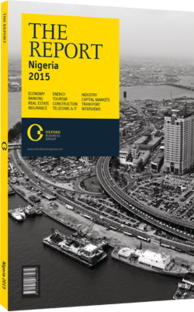Extending broadband penetration into Nigeria's rural communities
As in many developing nations in Africa and around the world, Nigeria’s rural population has declined in recent years as a result of steadily increasing rural-urban migration. While this trend is expected to continue for the foreseeable future, providing public services to rural communities remains a government priority.
In terms of telecoms, Nigeria’s rural population is consistently underserved compared to city dwellers, and the major telecoms providers have invested heavily in population centres while largely ignoring the sparsely populated rural areas. In recent years the government has renewed its efforts to boost rural telecoms access, primarily through development initiatives.
Since the liberalisation of the telecoms market in the early 2000s the government has worked to boost investment in rural areas by attaching provisos to telecoms licences that require holders to provide services across a certain percentage of the country. While this has had a positive impact on rural access, a large percentage of the population remains cut off. According to a 2013 study commissioned by Google and carried out by the US-based firm Dalberg Global Development Advisors, “25% of [Nigeria’s] rural dwellers do not have access to cell coverage and have to travel between 1 km and 10 km to access telephone services.”
Improving on this situation has major economic implications. A slew of recent studies have established a close link between access to ICT and economic growth. A 2011 joint study carried out by Ericsson, US consultancy Arthur D Little and Sweden’s Chalmers University of Technology found that a doubling in broadband speeds in OECD countries resulted in a 0.3% rise in GDP. This builds on a 2010 study by Ericsson and Arthur D Little that showed a 1% increase in GDP for every 10 percentage point rise in broadband penetration. With these figures in mind, Nigeria’s government is keen to boost broadband penetration, particularly in rural areas.
Sport-Start
A handful of projects aimed at boosting rural connectivity are under way. The National Rural Telephony Project (NRTP) commenced in 2001, when the government awarded a $200m contract to Chinese firms ZTE, Huawei and Shanghai Bell to install CDMA infrastructure. Between 2003 and 2006 the companies built telephone exchanges in many areas, but failed to complete work on the network.
In an effort to salvage the project, in 2009 the government re-auctioned it, resulting in five Nigerian firms taking charge of the NRTP roll-out on a build-operate-maintain basis. The contracts were won by Key Communications ($38m, to manage the initiative in Ibadan); Suburban Broadband ($141m, for the Federal Capital Territory and Kaduna); Voiceware Networks ($30m, for part of Enugu); Hezonic ($30m, for another part of Enugu); and Gicell Wireless ($20m, for Bauchi).
However, work on most aspects of the NRTP have yet to begin, with Voiceware Networks citing bureaucratic delays. Additionally, much of the CDMA infrastructure that was rolled out by the Chinese firms in the early 2000s is now out of date, and the network will not support high-speed broadband services.
Moving Forward
The Federal Ministry of Communication Technology’s National Broadband Plan (NBP) also aims to address the dearth of access in rural areas. Under the NBP, the government plans to boost broadband penetration from 6% to 30% by 2018. It lays out strategies for achieving this, including encouraging infrastructure sharing among telecoms firms; redefining ICT networks as critical national infrastructure so that they qualify for extra protection; ramping up auctions of wireless spectrum; and introducing incentives to encourage network development in rural areas.
Several of these initiatives are already under way. Under a new draft Telecoms National Infrastructure Bill, for example, telecoms equipment would be classified as critical national infrastructure, which should result in a decline in vandalism and theft. The government has also introduced legislation aimed at boosting infrastructure sharing. If the NBP moves forward as expected, Nigeria’s rural population should see a significant increase in connectivity in the years to come.
You have reached the limit of premium articles you can view for free.
Choose from the options below to purchase print or digital editions of our Reports. You can also purchase a website subscription giving you unlimited access to all of our Reports online for 12 months.
If you have already purchased this Report or have a website subscription, please login to continue.

